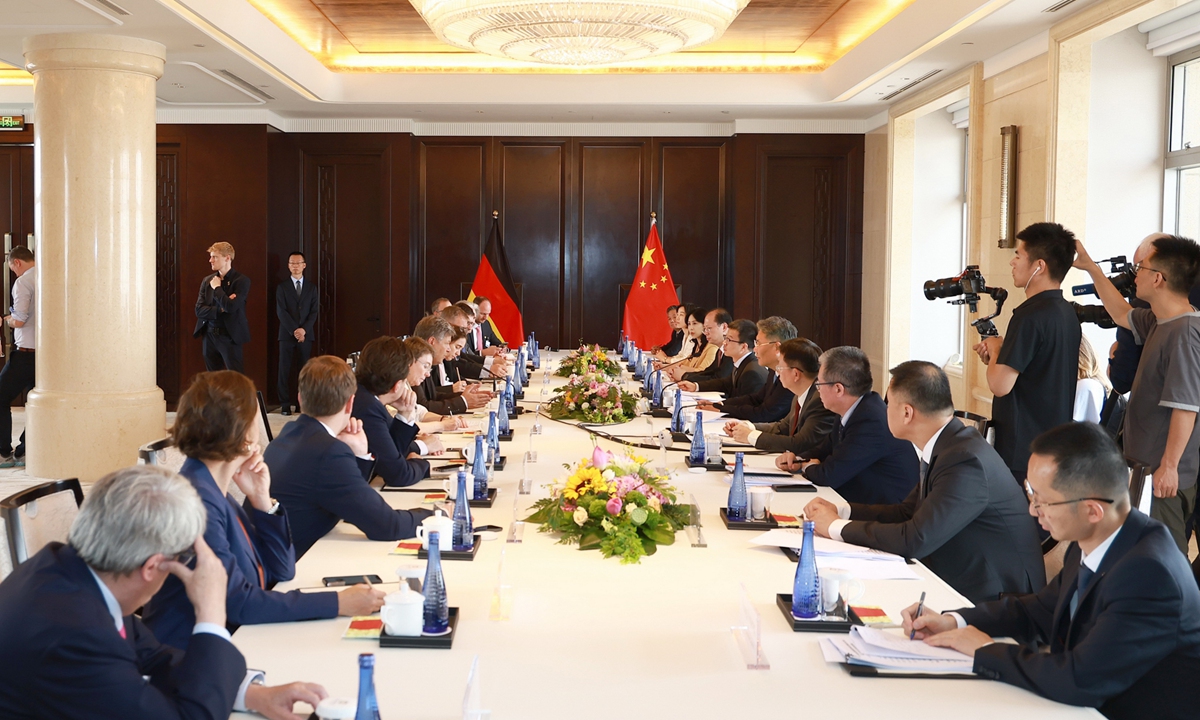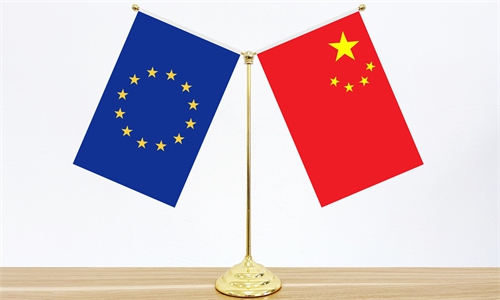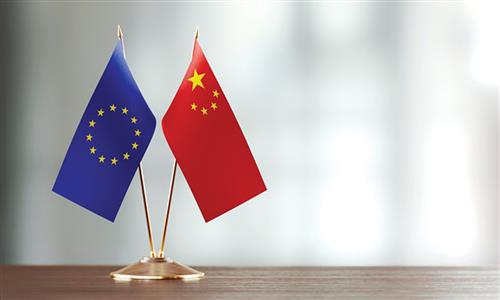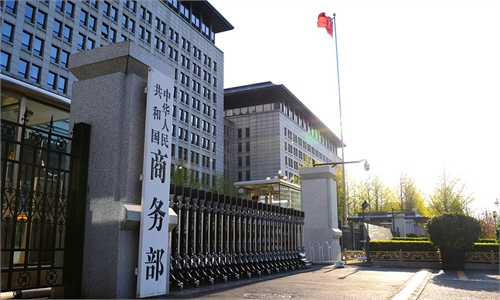
China's Commerce Minister Wang Wentao met with German Economy Minister Robert Habeck on Saturday Photo:Courtesy of MOFCOM
German Vice Chancellor and Federal Minister for Economic Affairs and Climate Protection Robert Habeck visited China between June 21 and 23. High-level exchanges between China and Germany have been frequent this year, and Habeck's visit with a delegation mainly composed of leaders of German small- and medium-sized enterprises is a sign of seeking broader cooperation between the two countries. However, he clearly has a more important task at hand. Prior to the trip, the German business community expressed a clear expectation that Habeck should act as a "mediator" between China and the EU, which are on the brink of intense trade disputes, to resolve the disputes early in the interests of German companies.
Currently, Europe is at a crossroads of development and transformation. Some knowledgeable individuals, including some in the EU, can clearly see whether the EU should continue to remain open, especially to China, or to follow the path of protectionism like the US.
However, it is regrettable that the European Union has not fully considered these rational voices, but instead continuously provoked trade disputes. Since 2024 alone, the EU has introduced 31 restrictive trade and investment measures against China, including 25 trade remedy measures. It has also initiated investigations against China under the Foreign Subsidies Regulation and the International Procurement Instrument, seriously disrupting China-EU economic and trade cooperation. The EU's initiation of an anti-subsidy investigation into electric vehicles (EVs) in China, without complying with WTO rules, and without protecting the legitimate rights and interests of enterprises, is a typical protectionist practice. Recently, the Chinese Ministry of Foreign Affairs, the National Development and Reform Commission, and the Ministry of Commerce have all made statements expressing strong dissatisfaction and firm opposition, and will take necessary actions to firmly defend China's own legitimate rights and interests.
Fortunately, both sides have returned to the negotiating table. On June 22, China's Commerce Minister Wang Wentao and Valdis Dombrovskis, executive vice president of the European Commission, agreed to start consultations on the issue of the European Union's anti-subsidy investigation into Chinese EVs.
The initiation of consultations is a rational and professional way to avoid escalating trade frictions, resolve differences through dialogue and negotiation, and push the consensus of the trilateral meeting of Chinese, French, and EU leaders back on the right track. This progress happened during the visit of Habeck to China, and as Habeck said, it was a first step on the long road ahead.
The EU's anti-subsidy investigation into Chinese EVs is controversial within the bloc. Germany is a major automobile country in Europe, and its automobile companies have been running businesses in China for many years, and do not approve of the EU's imposition of tariffs. Although Habeck stated before his visit that he could not represent the entire EU, his visit to China also gave him the opportunity to express the views of the German industrial sector.
In his meeting with Minister of Commerce Wang Wentao on June 22, Habeck said that imposing tariffs is the worst approach as it could lead to a vicious spiral of trade friction escalations, stressing that dialogue and consultations are the only way to solve problems. At a press conference held in Shanghai on the same evening, Habeck once again stated that he does not want to see tariffs imposed and hopes people can see the benefits of an open market.
Cooperation has always been the main theme of bilateral relations. Protectionism is not the solution, cooperation and free market competition are what both sides need. The development of China's EV industry is not related to subsidies, but mainly benefits from full market competition, the advantages of complete industrial and supply chains, and continuous strengthening of research and development investment in independent brands, continuously providing high-quality products at more competitive prices. China's EVs are recognized globally, showing the effect of market laws. Restricting Chinese EVs from entering the EU market will not help the growth of the European automotive industry, but will make European consumers pay higher prices for lower-quality products, harming their own interests.
Habeck's stated that the purpose of his visit was to introduce Germany's perspective into Europe. During his trip, he engaged in dialogue with Chinese senior officials, visited Chinese companies and universities. What is the foundation of the relationship between China and Europe? What is the direction? It's believed this visit can help him form a more intuitive understanding and bring these insights back to Europe, further helping the European side to remove their "colored glasses," look at the development of China's EV industry calmly and objectively, maintain the EU's own green transformation and global cooperation in addressing climate change starting from the reality of industrial development and the needs of the people, as well as contribute positively to the promotion of global economic and social green transformation and development.



